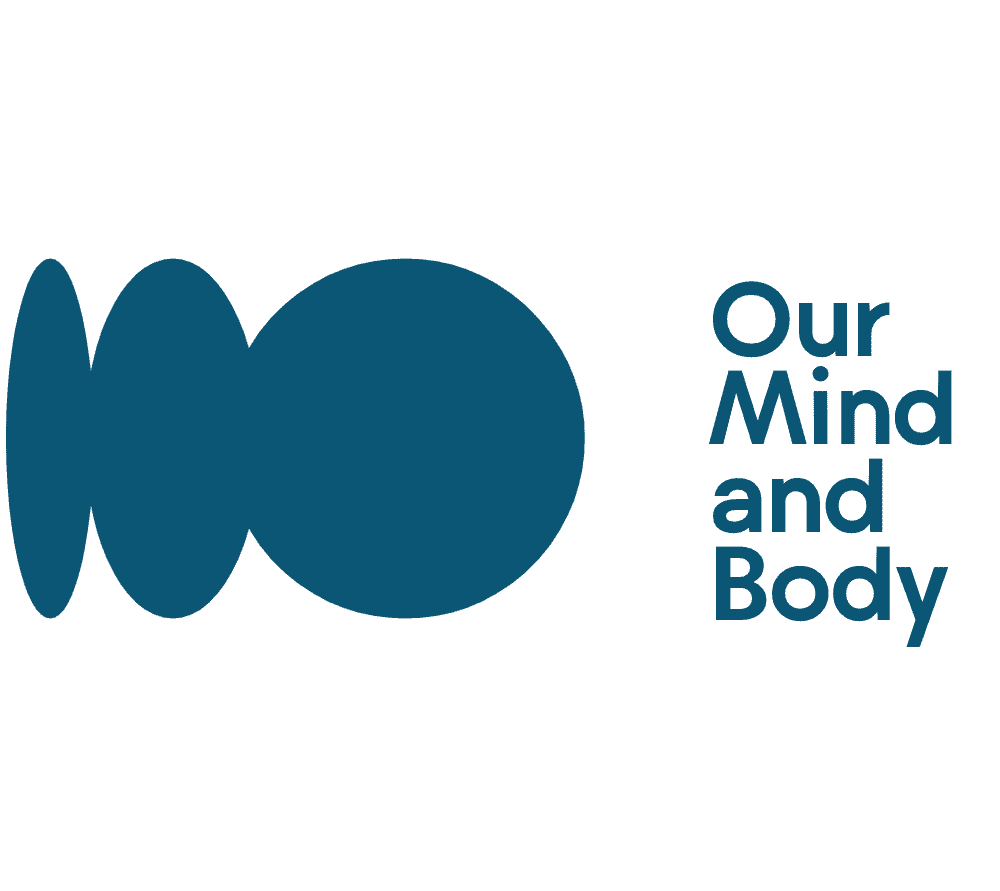Personal Growth
Embrace Your Inner Journey: A Guide to Self-Exploration and Personal Growth

Delving into the depths of your inner self can seem overwhelming, but it is truly a valuable journey in life. As a self-exploration specialist, my aim is to assist you in comprehending the significance of self-awareness for your happiness and achievements. Increasing your self-awareness creates opportunities for personal growth, introspection, affection, and nurturing.
It begins with understanding all that makes you unique: strengths, weaknesses, talents, emotions – even dreams! Self-awareness means accepting who you are without judgement or expectation from others; it’s about learning to trust what lies within. When we accept ourselves fully, our lives become filled with joy and strength.
The next step on this journey towards deeper connection with yourself is to explore the different aspects of your personality traits. By doing so, we can better appreciate our own thoughts and feelings while seeing new ways to express them authentically in the world around us.
Personality Traits
Understanding your personality traits is one of the most important steps in self-awareness and personal growth. Knowing who you are, what motivates you, and how to interact with others all stem from understanding yourself on a deeper level. That’s why it’s so important to know the following things about your personality:
- Your Personality Type – Taking a classic personality assessment like Myers-Briggs can be an enlightening experience that helps you gain insight into your individual traits and tendencies. It’s also helpful for better understanding how those same attributes affect relationships both at work and outside.
- Understanding Your Character Traits – Having knowledge of your character traits gives tremendous power in being able to make decisions based on what works best for YOU as an individual. Be sure to strive for balance between positive characteristics such as discipline, loyalty, initiative, integrity, resilience and courage as well as negative traits like envy or anger which lead to destructive behavior.
- Analyzing Your Strengths & Weaknesses – Have a good grasp on where you stand professionally; understand your strengths and weaknesses by taking stock of skillsets and aptitudes that play into our professional space but also look beyond those when evaluating ourselves holistically; looking at qualities such as humility, compassion, wisdom etc.. allows us to cultivate awareness around our overall capability set while providing direction towards improved performance within various areas of life.
By developing a keen sense of self through recognizing ones own unique blend of personality traits we become more aware of our capabilities thus allowing us to move forward confidently toward our goals regardless of any existing limitations or shortcomings along the way. This newfound clarity can help guide us towards making effective choices in achieving greater levels of success both personally and professionally moving forward into exploring one’s personal values next!
Personal Values
I believe that one of the most important things to know about yourself is your personal values. These are the core beliefs that guide your life and influence how you think, feel, and act. They serve as a moral compass, helping you determine what is right or wrong in any given situation.
| Value | Description |
|---|---|
| Self-Respect | Treating yourself with respect and dignity |
| Moral Compass | Having an internalized sense of right vs wrong |
| Personal Honor | Being true to your word |
| Life Purpose | Finding meaning in life |
| Spirituality | Connecting with something greater than self |
My values provide me with direction, purpose, and motivation. When I am clear on my values, I can make decisions more quickly and confidently because I have already set up guidelines for myself. Furthermore, living by my own code helps keep me accountable for my actions. It encourages me to stay honest with myself and strive for excellence in all areas of my life. By understanding my personal values deeply, I can live an authentic life that aligns with who I really am at heart!
Life Goals
We all have life goals that we want to reach, and it is important to understand how best to go about achieving them. To help you on this journey of self-discovery, here are the top 10 things you really need to know about setting and reaching your life goals:
- Start by understanding what drives you and why a goal matters to you.
- Break down big goals into smaller achievable steps.
- Set realistic expectations for yourself – be honest with yourself so as not to become overwhelmed or discouraged if progress isn’t immediate.
- Find ways to stay motivated over time by tracking your progress, rewarding successes, and staying focused on the end result.
- Monitor roadblocks in order to anticipate any potential problems before they happen, allowing for more efficient problem solving when needed.
- Focus more on process rather than outcome – celebrate small wins along the way!
- Stay positive throughout the journey and don’t forget to take care of yourself mentally, physically, emotionally and spiritually while working towards your goal(s).
- Make sure each goal is aligned with other personal values in addition to being actionable and measurable within reasonable timelines; otherwise they won’t hold much meaning or value in our lives anymore!
- Seek out support from others who can help keep us accountable while pursuing our objectives; it’s always good practice to share one’s dreams with trusted friends/family members too!
10 Finally, remember that failure should never define us, but instead motivate us towards success through learning experiences such as setbacks & wrong turns taken during our journeys.. With these tips in mind let us proceed confidently onto exploring our strengths and weaknesses next!
Strengths And Weaknesses
We all have our own unique strengths and weaknesses – it’s part of what makes us human. Knowing ourselves is the key to unlocking our full potential, and understanding where we are strong as well as areas for improvement can be a great starting point in this journey. As self-exploration experts, let’s take some time now to uncover the different aspects of your personal strengths and weakness areas.
First off, consider any qualities or skills you feel particularly confident about – these could range from problem solving abilities to interpersonal communication, creativity or other talents you may possess. These will form the foundation of your current capabilities which can then be built on through self-improvement efforts.
At the same time, also reflect on any challenges that come up regularly for you – these might include procrastination tendencies or difficulty with decision making. By being aware of our weak points we can create strategies to help better manage them moving forward.
All in all, by taking stock of both sides of the equation we can develop an accurate picture of who we are right now – an essential step towards becoming our best selves!
Habits And Behaviors
It is important to understand your habits and behaviors in order to gain a deeper understanding of yourself. Habits and behaviors can be both conscious and unconscious, but they are essential for living a successful life. By examining our daily routines, we can observe our habitual activities, as well as identify any areas that may need more self-discipline.
Behavioral patterns often reflect our true values and beliefs. This can help us become aware of how these preferences shape our lives. For example, if you notice that you tend to procrastinate when it comes to completing tasks, this could indicate underlying issues with self-confidence or purposeful motivation. Learning to recognize the root causes of certain behaviors will allow you to better address them in the future.
By being mindful of our habits and behaviors, we can make positive changes that lead to greater personal growth and fulfillment. Observing ourselves from an outside perspective provides invaluable insight into who we really are – what makes us unique, why we do things in certain ways, and ultimately how we create meaning out of life experiences. Taking time for thoughtful reflection allows us to build a strong sense of self-awareness which leads to meaningful insights about communication preferences.
Communication Preferences
We have all heard that knowledge is power, but understanding ourselves can be even more powerful. So let’s get started exploring our communication preferences. After all, it’s one of the most important things to know about ourselves!
| Communication Type | Social Communication | Verbal Communication | Nonverbal Communication | Online Communication |
|---|---|---|---|---|
| Examples | Gestures | Speaking/Writing | Facial Expressions | Chatting/Texting |
It may surprise you to learn that we are actually hardwired for social and verbal communication – it’s in our genes! We need these skills to connect with others and make meaningful relationships. But what about nonverbal communication? This includes body language, facial expressions, eye contact and other forms of physical expression. These subtle cues often carry as much meaning as what we say out loud or write down, so learning how to interpret them is a valuable skill. And finally, online communication has become an integral part of modern life and one of the best ways to stay connected with friends and family from afar. From chatting on messaging apps like WhatsApp or Skype to expressing yourself through Twitter or Instagram posts, there are many different ways to communicate virtually!
So now that you’ve explored your communication preferences, it’s time to take a look at emotional intelligence – another key component to self-understanding.
Emotional Intelligence
Understanding your emotional intelligence is key to fully understanding yourself. It is the ability to recognize, understand and manage our own emotions as well as those of others. Being emotionally intelligent requires self-awareness, self-regulation, social awareness and self-reflection.
Self-Awareness allows you to better understand yourself – your thoughts, feelings, motivations and desires. Identifying what drives behavior can help create more meaningful relationships with family, friends and colleagues. Self-regulation involves managing one’s emotions in a healthy way so that they don’t become overwhelming or damaging. This includes recognizing when you are feeling overwhelmed and taking steps to calm down or relax in order to move forward positively.
Social Awareness encourages us to be mindful of how our words and actions may impact those around us. Developing this skill helps foster strong communication skills which can improve all kinds of relationships both at home and work. Finally, Self-Reflection gives us an opportunity for personal growth by allowing us to examine our actions objectively without judgement. Taking time out for reflection can give a clearer perspective on how we interact with those around us day-to-day.
By developing these four essential aspects of emotional intelligence you will gain greater insight into who you really are – leading to improved decision making abilities while fostering stronger relationship bonds with others. With this newfound knowledge it’s easier to assess your stress tolerance level…
Stress Tolerance Level
Stress tolerance is a vital skill to have in today’s world. It can be the difference between making it through tough times or being overwhelmed by them. To understand your own stress-tolerance level, look no further than yourself and take time to reflect on how you handle moments of distress. Take for example, Sarah who recently experienced an unexpected job loss. Despite feeling devastated she was determined to find another job as soon as possible. Through her resilience and positive attitude towards life, she eventually landed a new position within weeks of losing her previous one. This shows that having a higher stress-tolerance level can lead to better outcomes during difficult times.
It is important to recognize what triggers stress for you personally so that you can manage it more effectively. Try different relaxation techniques like deep breathing or yoga when faced with stressful situations, as this will help reduce anxiety levels and give clarity into potential solutions. Additionally, learning how to prioritize tasks and delegate responsibilities are also great methods of managing stress-levels efficiently while maintaining focus on main goals.
Developing strong self-awareness skills along with healthy coping mechanisms such as regular exercise or journaling can also aid in improving overall stress-tolerance skills and decision-making processes moving forward.
Decision-Making Processes
When it comes to making decisions, having a clear understanding of your own decision-making processes is essential. It’s important to have the ability to identify problems and come up with solutions that best fit your needs. Here are five key elements for developing better decision-making skills:
• Problem-Solving Skills – Developing problem-solving skills through critical thinking can help you make more informed decisions when faced with difficult choices.
• Self-determination – Being able to trust in yourself and take ownership of your decisions will help you stay focused on achieving your goals.
• Critical Thinking – Turning data into actionable insights requires an understanding of both facts and opinions so you can evaluate the pros and cons before committing to any one solution.
• Risk Assessment – Evaluating potential risks associated with each course of action helps ensure that you don’t end up regretting a poor choice later down the line.
• Open Mindedness – Keeping an open mind allows you to consider all available options without bias or preconceived notions about what should be done.
These five tools provide invaluable insight into how we think, allowing us to become more aware of our personal decision-making processes—and make better ones as a result! With this newfound knowledge, you’ll find yourself confidently navigating complex situations and finding creative solutions for even the toughest challenges. As such, these skills enable us to make better long term plans while keeping our minds agile enough to respond quickly when unexpected events arise. Taking control over our path forward by mastering our decision-making processes can lead us towards reaching our full potential.
With greater awareness of these powerful principles, we gain improved self-confidence and autonomy in taking charge of our lives by proactively making changes where necessary. This sets the foundation for establishing a positive attitude towards change and growth within ourselves and those around us!
Attitude Towards Change
When it comes to self-exploration and growth, one of the most important things you need to know about yourself is your attitude towards change. Change can be difficult, but it is also a necessary part of life that allows us to grow and evolve.
| Attitude | Characteristic |
|---|---|
| Positive | Openness |
| Neutral | Readiness |
| Negative | Resistance |
When looking at how we approach change, there are three main attitudes we may take on: positive, neutral, or negative. Those with a positive attitude towards change tend to have an openness to new ideas and possibilities. People who have a neutral attitude exhibit readiness in adapting to new situations while those with a negative attitude often display resistance against changes they don’t understand or agree with.
Each individual has their own unique way of approaching different kinds of changes which will determine their level of success when faced with them. It is essential to become aware of our own attitudes towards change so that we can adjust accordingly and increase our ability for successful navigation through any situation requiring adaptation or adjustment.
Problem-Solving Skills
Problem-solving skills are essential for success, but identifying and analyzing problems can be a challenge. You need to know how to identify the problem correctly before you can develop an effective solution. This requires understanding your own strengths and weaknesses, as well as being able to think critically about possible causes and solutions. Once you have identified the problem, it is important to analyze it in detail so that you can create an appropriate response or plan of action. Developing effective solving techniques involves breaking down complex issues into smaller parts, which will help make them easier to tackle. Moreover, utilizing creative thinking strategies such as brainstorming can also give you insight into unique approaches that may not have been considered initially. Ultimately, developing these problem-solving skills will enable you to address any issue with confidence and creativity.
Self-motivation plays a key role in achieving goals and making progress towards desired outcomes. It’s important to understand what drives you and maintain positive self-talk while pushing through challenging times.
Self-Motivation Strategies
In the quest to better ourselves, self-motivation is key. To stay on track, we must be able to motivate ourselves and sustain our focus on important goals. Here I have compiled a few tried and true personal motivation tips that can help you get back on your feet when it feels like all hope is lost.
First, set clear, attainable goals for yourself. Setting achievable short-term goals will keep you motivated and provide tangible results as milestones along the way towards longer-term objectives. Additionally, cultivate positive thinking techniques; surround yourself with encouraging people who share in your vision of success and refuse to accept defeatist attitudes from those around you.
Finally, practice consistent self-discipline strategies to reach your desired outcomes without procrastinating or giving up due to challenging circumstances out of your control. Remember – every successful person has faced obstacles but was willing to push through them using their own internal drive and determination! With these goal setting strategies and self-motivation tactics firmly in place, let’s move onto building a social support system that boosts our spirits even further…
Social Support System
As you explore yourself, it is important to consider the social support system that surrounds you. Having a strong social support network can be beneficial in many ways; from having someone to talk to when feeling down or stressed out, to having people who will help with difficult tasks like moving house. Building and creating meaningful social connections is an essential part of personal growth. It can provide companionship, validation, reassurance, understanding, empathy and friendship – all elements which are invaluable during times of need.
The benefits of finding social support may range from emotional comfort and positive energy to practical advice and assistance – whatever is needed at the time. A supportive group of friends or family members can offer valuable feedback about your decisions as well as providing physical and/or financial aid in certain circumstances. Social networks also act as a buffer against stressors by helping build resiliency during challenging situations.
Having access to resources such as these makes life more enjoyable and comfortable for everyone involved so it’s wise to invest some effort into developing relationships with those around you. Whether it be through online communities, religious organizations or other groups, seeking out individuals who share similar interests or beliefs is one way of building genuine connections that could possibly benefit both parties over the long-term. With this in mind, take some time to actively search for reliable sources of social support within your own circle of friends and acquaintances – they might just surprise you!
With a better appreciation for what a robust social support system looks like, let us now turn our focus on how we cope with adversities using various strategies…
Coping Mechanisms
Coping mechanisms are essential for managing stress and maintaining mental health. There’s a lot to learn about yourself when it comes to identifying the best ways to cope with life’s challenges. To help you get started, here are 10 things you need to know:
- Know what triggers your emotions: Identifying which situations or people trigger negative emotions can be difficult, but is an important part of understanding how to better manage them. Knowing what causes you distress will allow you to create coping techniques that work for you.
- Create self-care routines: Establishing effective self-care routines allows us to focus on our needs in order to keep ourselves healthy and balanced. This involves setting aside time each day for activities such as exercise, meditation, journaling, reading, or talking with friends and family members who offer support.
- Develop resilience strategies: Resilience helps us bounce back from tough times more quickly and effectively. Developing resilience strategies includes learning how to reframe challenging experiences into positive ones by focusing on the lessons learned rather than dwelling on the negatives. It also involves recognizing personal strengths that can be used when faced with adversity and developing new skillsets for dealing with future struggles.
- Understand the importance of stress management: Stress management is key for improving overall wellbeing and reducing risk factors associated with physical and mental health issues. Understanding how different types of stress affect us differently can help us identify which coping strategies work best in specific circumstances, allowing us to make decisions that lead to healthier outcomes long term.
- Coping Techniques
- Mindfulness practices
- Listening or writing music/poetry
- Physical activities like yoga or running
- Self-Care Routines
- Scheduling regular check-ins with close friends/family
- Enjoyable hobbies like cooking or playing video games
- Getting plenty of restful sleep every night
These four tips provide a starting point for exploring methods of managing emotional responses while building skills related to mental health resilience, self-care routines, stress management and coping techniques—all necessary components of successful self exploration!
Frequently Asked Questions
How Can I Improve My Communication Skills?
Improving communication skills is key for anyone wanting to make a positive impact in the world. It’s not only about verbal communication, but also interpersonal and non-verbal cues that can help us be more assertive when communicating with others.
To get started on improving your communication abilities, begin by understanding yourself better; become aware of what works and doesn’t work for you. Take notice of how you interact with other people around you – are there any patterns or habits that could use improvement? Listening is an important part of effective communication, so practice being attentive during conversations while actively considering other people’s points of view. Reflection can also assist in developing improved self-awareness which in turn will lead to better decision making processes.
As we continue our journey to becoming better communicators, it’s essential to take into account both verbal and nonverbal elements when engaging with those around us. Be mindful of body language such as posture, gestures and facial expressions as they have proven to be powerful tools in conveying meaning during interactions. Aiming towards being more assertive rather than aggressive will go a long way in building trust between two parties since it allows each person involved enough room to express themselves without feeling threatened or unheard.
Overall, having strong communication skills means having the power to influence relationships positively, something that has been shown time and again throughout history. As we look at ourselves objectively and strive for personal growth, remember that mastering these crucial abilities takes patience, dedication and mindfulness – all qualities worth cultivating!
How Can I Better Manage My Stress Levels?
It’s no surprise that stress levels are at an all-time high in today’s world. But it is possible to manage your stress levels and lead a healthier, happier life. As a self-exploration expert, I’m here to share some of the best ways you can reduce your stress and find relief from it:
1) Take time for yourself – Everyone needs “me” time, so make sure you take the time out of each day to relax, meditate or do something else that makes you happy.
2) Exercise – Research has shown that regular exercise can help improve both physical and mental health by helping to release endorphins which act as natural stress relievers. So get moving!
3) Use coping strategies – Whether it’s deep breathing exercises or writing down your thoughts and feelings in a journal, there are many different techniques available for managing your stress levels. Find one that works for you and stick with it.
Satire aside, taking care of yourself should be top priority if you’re looking for effective ways to manage your stress levels. From changing up your lifestyle habits to trying out various coping strategies, there are plenty of options available when it comes to reducing anxiety and improving overall wellbeing. Don’t wait until things get worse before stepping back and focusing on what matters most—you!
What Techniques Can I Use To Stay Motivated?
When it comes to staying motivated, there are a number of techniques you can use. Self-motivation is an important part of any personal development journey and having the right strategies in place can help ensure that you stay on track with your goals. Here are some tips for remaining motivated:
- Set achievable goals – Start by setting realistic and achievable goals that will keep you focused and challenged. This will give you something to work towards which should increase motivation levels as well as provide a sense of accomplishment when achieved.
- Celebrate successes – Acknowledge even small accomplishments along the way – this encourages continued effort while providing encouragement and reward for what has been accomplished so far.
- Shift focus away from perfection – Focus instead on progress rather than striving for perfection; even incremental improvements can be celebrated and provide incentive for pursuing further success.
- Find inspiration – Whether through books, podcasts, or conversations with inspiring people, surround yourself with positive influences that encourage growth and self-improvement.
These tried-and-tested techniques allow us to remain motivated over time, regardless of where we’re starting from or how difficult our current circumstances may seem. By focusing on consistent effort rather than immediate results, we make gradual progress that leads us closer to achieving our long term objectives at our own pace and comfort level. We don’t have to wait until we reach our ultimate goal before feeling proud of ourselves – celebrating each step forward helps maintain good momentum throughout the process!
What Strategies Can I Use To Build A Stronger Social Support System?
It’s easy to become overwhelmed when we feel like there is too much on our plate and not enough support around us. But having a strong social support system can make all the difference in helping you stay motivated and manage stress. Building relationships with friends, family, and professionals are key for developing your own social support network that will provide the encouragement and guidance needed to help keep you going.
An important part of building an effective social support system is making sure you have supportive relationships with people who understand your goals and challenges. This means taking steps to foster meaningful connections by engaging in enjoyable activities together or even just checking in with each other regularly over text or video chat. Additionally, it’s important to reach out beyond your existing circle of contacts—whether through online groups or local events—in order to meet new people who may be able to offer different perspectives or resources that could benefit you socially or professionally.
When forming these new bonds, it’s also essential to remember that everyone has something unique to bring into the equation; so take time to appreciate and learn from one another as well as ask for advice when necessary. Taking advantage of opportunities like group therapy sessions can also be beneficial because they give you an opportunity to gain insight from others while providing a safe space for honest dialogue about how certain situations impact your life personally or professionally.
By following these strategies, you can begin creating a stable base of individuals who will be there for moral support during difficult times and celebrate successes with joy during better days. Ultimately, this level of connectivity helps create resilience against potential obstacles which leads towards greater overall self-care and peace of mind no matter what comes next.
How Can I Become Better At Making Decisions?
Making decisions can be difficult. It’s natural to feel overwhelmed when trying to decide between multiple options or paths, as well as feeling uncertain about the outcome of our choices. But learning how to make effective and informed decisions is an important skill that everyone should strive for in order to live a more fulfilling life. To become better at making decisions, there are certain decision-making tactics, strategies, tips and techniques you can use.
Some helpful decision-making tactics include considering both short and long term consequences of your choice, asking yourself questions such as ‘Will this benefit me?’, consulting with people whose opinion you trust, focusing on one thing at a time instead of getting distracted by too many variables and checking any assumptions you may have made before deciding. Additionally, it’s important to factor in your own values system when making decisions; if something goes against your core beliefs then it might not be the right option for you.
Decision-making processes don’t always happen overnight; take some time to think things through before committing to anything major. Acknowledge all possible outcomes of each option – good and bad – so that you’re aware of what could happen once the decision has been made. Don’t rush into anything without doing proper research first either; understanding different perspectives will give you a broader range of potential solutions from which to choose from.
At times like these, remember that taking a step back from the situation can help bring clarity and insight into whatever problem needs solving. Consider meditation or journaling as ways to gain insight into yourself and discover new solutions within yourself that could lead towards making more efficient decisions down the line. With practice comes mastery, so stay committed! Becoming comfortable with making quick yet informed decisions takes patience but it’ll definitely be worth it!
Conclusion
When it comes to personal growth, there is no one-size-fits all solution. Everyone has different needs and motivations, so it’s important that you take the time to explore what works best for you. As the old adage goes “Know thyself”, and by taking the time to get to know yourself better, you can make more informed decisions about your life and how to be a better version of yourself.
The first step in this journey should be understanding what is important to you. Identify your core values and goals, as these will serve as guiding posts throughout your self-exploration process. Once you have an idea of where you want to go, brainstorming on ways to get there becomes easier. You may find new tools or techniques which help increase motivation or productivity, while also finding healthier methods of managing stress levels.
Finally, don’t forget that we are social creatures who thrive with strong support systems around us – build meaningful relationships with those who understand and appreciate you for who you are. Remember, everyone’s path towards greater self-awareness is unique – start small but stay consistent in exploring what makes up “you”!
Meet Nadi, the soulful writer and explorer of inner realms who graces OurMindAndBody.com with her profound insights and heartfelt wisdom. With a profound passion for mindfulness, meditation, and spiritual growth, Nadi weaves words that touch the hearts and minds of readers, leaving a lasting impact on their well-being journey.
Rooted in a background of philosophy and psychology, Nadi’s curiosity about the human mind and the mysteries of the soul led her on a transformative path of self-discovery. Drawn to the transformative power of mindfulness and meditation, she embarked on a quest to understand the intricacies of these practices, not only for her own growth but also to inspire others to embark on their own inner journeys.
Personal Growth
The Spiritual Significance Of Shooting Stars: Meaning And Symbolism

Have you ever gazed up at the night sky and witnessed a meteor streaking through the darkness? It’s a moment that mesmerizes us and fills us with wonder and awe.
Shooting stars, both scientifically and spiritually, hold a profound significance. Scientifically, they provide valuable insights into the history and composition of our universe.
But beyond the realm of science, shooting stars carry a deeper, more spiritual meaning. In this article, we will explore the spiritual significance of shooting stars, delving into their symbolism and the profound impact they can have on our lives.
Key Takeaways
- Seeing a shooting star spiritually is believed to bring good luck and positive energy
- Many cultures associate shooting stars with messages from the spiritual realm or the universe
- Shooting stars are often interpreted as a sign of new beginnings or endings
- Symbolic meanings of shooting stars include new ideas, wishes, dreams, and spiritual journeys
What are shooting stars?
I’ve learned that shooting stars are natural phenomena caused by debris from space entering the Earth’s atmosphere, and they burn up, creating a bright streak of light across the sky.
It’s fascinating to think about the mythological origins and cultural beliefs surrounding shooting stars. In many cultures, they are seen as messages from the spiritual realm or the universe. Some believe that seeing a shooting star spiritually brings good luck and positive energy, while others associate them with new beginnings or endings.
The symbolic meanings attached to shooting stars can vary widely, depending on individual perspectives and cultural beliefs. For some, they represent wishes, dreams, and spiritual journeys. Others may see them as signs of transformation, growth, or even bad luck.
Regardless of the interpretation, witnessing a shooting star always leaves a lasting impression, igniting a sense of wonder and awe in those fortunate enough to see one.
Scientific explanation
Astronomers study shooting stars using telescopes and instruments to provide a scientific explanation for the phenomenon. Through the exploration of shooting stars, scientific research on shooting stars has revealed fascinating insights into the celestial world. Here are four key findings:
-
Understanding celestial body movement and composition: By studying shooting stars, scientists gain valuable knowledge about how celestial bodies move and their composition. This research helps piece together the history of our Solar System.
-
Insights into the formation of celestial bodies: Analyzing the fallen meteors from shooting stars allows scientists to determine the age and make-up of the Solar System. This information provides valuable insights into the formation of celestial bodies.
-
Unveiling the evolution of the Solar System: Meteor composition analysis sheds light on the evolution of the Solar System. By studying shooting stars, scientists can understand the presence of certain elements in space and gain a deeper understanding of the Solar System’s evolution.
-
Enhancing appreciation for the phenomenon: Understanding the scientific explanation behind shooting stars enhances our appreciation for this awe-inspiring phenomenon. It allows us to marvel at the beauty of shooting stars while also acknowledging the immense knowledge that scientific research has provided.
Regular occurrence
During meteor showers, I love to search for shooting stars in the night sky. It’s a magical experience that fills me with wonder and awe. To make the most out of these celestial events, it’s important to know the meteor shower dates and the best locations for stargazing. Meteor showers happen regularly throughout the year, with the Perseids meteor shower being one of the most well-known, occurring in August. But there are many other meteor showers that take place annually, each with different levels of activity. To increase your chances of seeing shooting stars, find a location away from city lights for better visibility and choose a spot with an unobstructed view of the sky. By being patient and allowing your eyes to adjust to the darkness, you can fully immerse yourself in the beauty of these shooting stars.
Importance of meteor composition analysis
Analyzing the composition of fallen meteors is crucial for understanding the age and make-up of the Solar System. Meteor shower analysis provides valuable insights into the formation of celestial bodies and the evolution of our Solar System.
By studying the chemical composition of these fallen meteors, scientists can unravel the mysteries of our planetary system. It reveals information about the presence of certain elements in space and helps piece together the story of celestial body formation.
This analysis not only enhances our understanding of the Solar System but also deepens our appreciation for the beauty and complexity of the universe. It is through the study of meteor composition that we gain a glimpse into the vastness and wonder of the cosmos, igniting a sense of inspiration and awe within us.
Tips for observing
To enhance your experience of observing shooting stars during meteor showers, it is helpful to find a location away from city lights for better visibility. The best locations for stargazing are usually in remote areas where light pollution is minimal. Choose a spot with an unobstructed view of the sky to maximize your chances of seeing shooting stars.
It’s also important to be patient and allow your eyes to adjust to the darkness. Additionally, if you’re interested in capturing the beauty of shooting stars through photography, there are a few tips to keep in mind. Use a tripod to keep your camera steady, set a wide aperture to let in more light, and use a long exposure to capture the movement of the shooting stars.
With these tips, you can fully immerse yourself in the awe-inspiring experience of witnessing shooting stars during meteor showers.
Positive spiritual beliefs
Experiencing a shooting star fills me with a sense of positivity and brings a feeling of good luck and possibility. It’s as if the universe is sending a message of encouragement and reminding me of the infinite potential within myself.
When I see a shooting star, I take a moment to reflect and express gratitude for the blessings in my life. I then set positive intentions for the future and visualize my dreams and desires manifesting into reality. This act of manifestation is a powerful spiritual practice that helps me stay focused on my goals and allows me to attract the positive energy needed to achieve them.
It’s a reminder that I have the power to create my own destiny and that the universe is conspiring in my favor. So, the next time you witness a shooting star, take a moment to embrace its positive energy and utilize it as a catalyst for your own personal growth and transformation.
Negative spiritual beliefs
When I witness a shooting star, it fills me with a sense of unease and foreboding, as if it is a sign of impending doom or misfortune. In many cultures, shooting stars are associated with negative meanings and superstitions. Some believe that seeing a shooting star is a symbol of death or a bad omen. These beliefs stem from ancient superstitions and cultural interpretations passed down through generations. The idea of a shooting star representing the end of something or a warning of impending tragedy can be deeply ingrained in our subconscious. This negative symbolism attached to shooting stars serves as a reminder to cherish the present moment and appreciate the blessings in our lives. It encourages us to reflect on our actions and make positive changes to avoid any potential negative outcomes.
| Negative Symbolism | Superstitions about Shooting Stars |
|---|---|
| Death | A sign of impending tragedy |
| Misfortune | Bad luck associated with shooting stars |
| Omen | A warning of negative events |
| Impending doom | A sense of foreboding and unease |
Reflection and gratitude
After witnessing a shooting star spiritually, it is natural to be filled with a sense of wonder and awe. The beauty and fleeting nature of these celestial phenomena leave a lasting impression on our hearts and minds.
As I reflect on the spiritual significance of shooting stars, I am reminded of the importance of gratitude in our lives. Taking a moment to pause and appreciate the magic that unfolds before us can be a powerful spiritual practice. It allows us to connect with the universe and acknowledge the infinite possibilities that exist.
Expressing gratitude for the opportunity to witness such a breathtaking sight opens our hearts and minds to the abundance of blessings that surround us. In these moments of reflection and gratitude, we align ourselves with the positive energy of the universe, inviting more miracles and blessings into our lives.
Cultural interpretations
Cultural interpretations of shooting stars vary widely, with different belief systems attributing various messages and events to their appearance. Throughout history, these celestial phenomena have held immense cultural significance, captivating the imaginations of people from all walks of life.
Here are a few examples of how different cultures have interpreted the spiritual meaning of shooting stars:
-
In ancient Greek mythology, shooting stars were seen as a sign of divine favor or displeasure. They were believed to be the souls of deceased loved ones, guiding and protecting those who witnessed them.
-
Native American tribes viewed shooting stars as communication from the spirit world. They believed that these celestial visitors brought messages from ancestors or spirit guides, offering guidance and wisdom.
-
In Chinese culture, shooting stars are associated with luck and prosperity. It is believed that making a wish upon a shooting star can bring good fortune and help manifest one’s desires.
-
In Hinduism, shooting stars are seen as a symbol of transformation and the cycle of life. They represent the journey of the soul and the potential for spiritual growth and enlightenment.
These cultural interpretations highlight the deep-rooted historical significance of shooting stars and the diverse ways in which they have been understood and revered. They remind us of the interconnectedness of humanity and the universal human desire to find meaning in the natural world.
Symbolic representations
As I delve deeper into the spiritual significance of shooting stars, I can’t help but marvel at the myriad of symbolic representations attached to these celestial wonders.
Beyond cultural interpretations, shooting stars hold a profound connection to astrology and spiritual rituals. They are seen as celestial messengers, carrying messages from the universe to guide us on our spiritual paths.
Many spiritual rituals involve making wishes or setting intentions when a shooting star streaks across the night sky, believing that these desires will manifest into reality. The fleeting nature of shooting stars reminds us to cherish the present moment and seize opportunities for growth and transformation.
They ignite a sense of wonder and awe, inspiring us to pursue our dreams and aspirations. In this vast universe, shooting stars serve as spiritual beacons, reminding us of the infinite possibilities that await us on our journey.
Inspiration and motivation
Experiencing a shooting star ignites a deep sense of inspiration and motivation within me. It reminds me of the infinite possibilities that exist in the universe and the power of our dreams and aspirations. When I gaze upon a shooting star, I am reminded of the importance of finding purpose and pursuing our true passions in life. It serves as a gentle nudge from the universe, encouraging me to take action and follow my heart’s desires. The shooting star represents the fleeting nature of life and the importance of seizing every moment. It reminds me to never give up on my dreams, no matter how big or small they may be. Witnessing a shooting star fills me with a sense of wonder and awe, and it reinforces my belief in the beauty and magic of the world around us.
| Finding Purpose | Pursuing Dreams |
|---|---|
| – Shooting stars remind us of the importance of finding our purpose in life. | – They inspire us to pursue our dreams and aspirations. |
| – They serve as gentle reminders to follow our hearts and do what truly makes us happy. | – Shooting stars symbolize the infinite possibilities that exist in the universe. |
| – The fleeting nature of shooting stars reminds us to seize every moment and make the most of our lives. | – They encourage us to take action and not be afraid to chase after our dreams. |
| – Witnessing a shooting star sparks a sense of motivation and reminds us of the beauty and magic of the world. | – They reinforce our belief that anything is possible if we have the courage to pursue it. |
Magical and enchanting experience
The sight of a shooting star creates a mesmerizing and enchanting moment that captivates my senses. As I gaze at the night sky, a shooting star streaks across the darkness, leaving behind a trail of shimmering light.
In that fleeting instant, I feel a deep sense of connection with the universe, as if the vast expanse of space is reaching out to touch my soul. It is a reminder of the infinite possibilities that exist in the universe and within myself.
The magical nature of shooting stars ignites a spark within me, awakening my spirit and inspiring me to embrace my own journey of self-discovery. In that brief encounter with the shooting star, I am reminded to stay true to my path, to follow my dreams, and to trust in the power of the universe to guide me towards my highest purpose.
Frequently Asked Questions
Are shooting stars actually stars?
No, shooting stars are not actually stars. They are debris from space, such as meteoroids, that enter the Earth’s atmosphere and burn up, creating a bright streak of light across the sky.
Can shooting stars grant wishes?
Shooting stars have captivated human imagination for centuries, with magical folklore suggesting they can grant wishes. While scientific explanations reveal their true nature, the idea of wishes coming true adds a sense of wonder and hope to the experience.
What do shooting stars symbolize in different cultures?
Cultural interpretations of shooting stars vary widely, reflecting the diverse beliefs and historical significance of different cultures. They can symbolize new beginnings, messages from the spiritual realm, hope, and inspiration, among other concepts.
Are there any negative beliefs associated with shooting stars?
Witnessing a shooting star can be a breathtaking experience, but there are some negative beliefs associated with them. Some cultures view shooting stars as omens of death or bad luck, which can have a disheartening effect on those who witness them.
How can witnessing a shooting star impact someone’s spiritual journey?
Witnessing a shooting star can have a profound impact on my spiritual journey. It reminds me of the vastness of the universe and my connection to it. It inspires personal growth, ignites a sense of wonder, and encourages me to pursue my dreams.
Conclusion
As I gaze up at the night sky, witnessing the fleeting beauty of a shooting star, I am reminded of the profound spiritual significance that these celestial wonders hold. They are more than just natural phenomena; they are messengers from the universe, igniting a sense of wonder and hope within our souls.
Like the shooting star that streaks across the darkness, we too have the power to leave a lasting impression and inspire others with our dreams and aspirations. Just as the shooting star lights up the night sky, let us illuminate our own paths and embrace the magic and enchantment of life’s journey.
Say hello to Cypress, the soulful wordsmith behind the insightful articles at OurMindAndBody.com. Cypress is a gifted writer who weaves words with grace and precision, using language as a powerful tool to inspire, heal, and uplift the spirits of readers.
With a background in literature and a passion for personal growth, Cypress brings a unique perspective to the world of well-being and spirituality. Having experienced the transformative effects of meditation and yoga firsthand, Cypress is deeply connected to the essence of these practices and their potential to enrich lives.
Personal Growth
The Spiritual Significance Of The Name James

Did you know that the name James has deep spiritual significance? Coming from Hebrew, meaning ‘supplanter’ or ‘holder of the heel,’ the name James represents persistence, courage, and the skill to overcome obstacles.
Numerologically, it carries a value of 11, symbolizing leadership and spiritual enlightenment. Astrologically aligned with Mars, it embodies courage and assertiveness. The symbolic significance of its letters further reveals optimism, sensitivity, and intuition.
Additionally, James is associated with reliability, loyalty, and leadership, offering protection and guidance in various cultures.
Join me as we explore the profound spiritual meaning of the name James.
Key Takeaways
- The name James has a spiritual meaning of persistence, courage, and overcoming obstacles.
- Numerologically, the name James has a value of 11, indicating leadership qualities and spiritual enlightenment.
- Astrologically, the name James corresponds with the planet Mars, symbolizing courage and assertiveness.
- The letters in the name James, such as J and S, hold symbolic significance, representing optimism, excitement, sensitivity, and intuition.
Origin and Meaning
The origin and meaning of the name James is quite fascinating. It is derived from the Hebrew name Yaakov, which means supplanter or holder of the heel.
In a spiritual context, the name James represents someone who is persistent, courageous, and willing to overcome obstacles.
This name holds great significance in numerology and astrology as well. Numerologically, James has a numerical value of 11, indicating leadership qualities and spiritual enlightenment. Astrologically, the name corresponds with the planet Mars, signifying courage and assertiveness.
The symbolic significance of the letters in James adds depth to its meaning. The J represents optimism and excitement for life, while the S signifies sensitivity and intuition.
Overall, the name James carries a powerful spiritual meaning. It reflects qualities of strength, determination, and the ability to rise above challenges.
Numerological Symbolism
Numerology unveils the captivating power behind the numeric value of my name, as the number 11 ignites a blazing trail of leadership and spiritual enlightenment. This numerical value signifies my innate ability to lead and inspire others, as well as my deep connection to the spiritual realm.
I am driven by a strong sense of purpose and a desire to make a positive impact on the world. The number 11 also represents spiritual enlightenment, indicating that I am constantly seeking higher truths and wisdom.
It is through my leadership qualities and dedication to spiritual growth that I am able to navigate the challenges and obstacles that come my way. Numerology allows me to understand and embrace the profound significance of my name, James, as it illuminates the path of my life journey.
Astrological Associations
Astrologically speaking, Mars represents my courage and assertiveness, providing me with the strength to face challenges head-on. In numerology, the name James corresponds with the numerical value of 11, indicating my leadership qualities and spiritual enlightenment.
This celestial connection allows me to tap into my innate sense of determination and fearlessness. As a result, I am able to navigate through life’s obstacles with unwavering resolve.
The position of each letter in my name holds symbolic significance as well. The J signifies my optimism and excitement for life, while the S represents my sensitivity and intuition. These qualities, combined with the influence of Mars, shape my life journey and contribute to my character.
The name James, with its spiritual meaning of persistence and courage, serves as a constant reminder of my ability to overcome any challenge that comes my way.
Symbolic Significance of Letters
In understanding the symbolic significance of letters in my name, I find that the J represents my optimism and excitement for life, while the S signifies my sensitivity and intuition.
The letter J is associated with the planet Jupiter, which symbolizes expansion and growth. This resonates with my personality as I always strive for personal and spiritual development.
The S, on the other hand, correlates with the moon, representing emotions and intuition. I am highly empathetic and intuitive, often relying on my instincts to guide me in making decisions.
Understanding these symbolic meanings of the letters in my name gives me a deeper insight into my life journey and the qualities that define me. It allows me to embrace and cultivate these qualities, leading to a more fulfilling and purposeful existence.
Biblical References
When exploring the biblical references associated with my name, I feel a deep connection to the stories of James the son of Zebedee and James the son of Alphaeus, as they exemplify the strength and resilience required to navigate life’s challenges.
James the son of Zebedee was one of the twelve apostles chosen by Jesus, and he played a significant role in spreading the teachings of Christianity. He was known for his unwavering faith and commitment, even in the face of persecution and adversity.
James the son of Alphaeus, also known as James the Less, was another disciple of Jesus and was known for his humility and dedication to serving others.
Both Jameses serve as powerful examples of how faith and determination can guide us through difficult times and inspire us to lead lives of purpose and devotion.
Famous Namesakes
One of the most well-known individuals who shares my name is the actor James Franco. He is a versatile and talented actor who has appeared in numerous films and television shows.
-
First, imagine being on the set of a blockbuster film with James Franco. The cameras are rolling, and he effortlessly embodies his character, captivating the audience with his powerful presence and emotional range.
-
Next, picture attending a prestigious awards ceremony alongside James Franco. He gracefully walks the red carpet, exuding confidence and style. As he accepts his well-deserved award, his charismatic smile lights up the room.
-
Finally, envision sitting in a theater, watching a play directed by James Franco. His creative vision and attention to detail shine through, transporting the audience into a world of art and imagination.
These scenarios illustrate the impact and influence that someone with the name James can have in the entertainment industry, showcasing their talent, dedication, and ability to captivate audiences.
Cultural Beliefs and Traditions
Growing up in a close-knit Italian-American community, I vividly remember the annual Feast of Saint James celebration, where families would come together to honor their patron saint with a lively parade, delicious food, and traditional music and dancing. This cultural belief and tradition held a significant spiritual meaning for us, as Saint James was believed to offer protection and guidance. The celebration allowed us to connect with our faith and heritage, and it served as a reminder of the values associated with the name James, such as reliability, loyalty, and leadership.
To paint a picture of the Feast of Saint James, here is a table showcasing some of the elements that made this celebration so special:
| Feast of Saint James Celebration | |
|---|---|
| Lively Parade | Delicious Food |
| Traditional Music | Dancing |
| Community Gathering | Honoring Patron Saint |
This annual event not only brought our community together but also reinforced the spiritual significance of the name James in our lives.
Nicknames and Variations
I’ve always loved the various nicknames and variations of my name, James. It is fascinating to see how this name can be transformed and adapted in different cultures and contexts.
In English-speaking countries, common nicknames for James include Jim, Jimmy, and Jamie. These variations add a sense of familiarity and informality to the name, making it more approachable.
In other cultures, there are different variations of the name James that carry their own unique meanings and connotations. For example, in Spanish, the name Santiago is a common variation of James, which means ‘Saint James.’ This variation emphasizes the spiritual and religious significance of the name.
Overall, the nicknames and variations of the name James showcase the versatility and adaptability of this timeless name.
Frequently Asked Questions
Is there a specific spiritual ritual or ceremony associated with the name James?
There is no specific spiritual ritual or ceremony associated with the name James. The spiritual significance of the name lies in its meaning and symbolism, representing qualities such as persistence, courage, and overcoming obstacles.
Are there any specific gemstones or crystals that are believed to enhance the spiritual energy of the name James?
Oh, the wonders of gemstones and crystals! When it comes to enhancing the spiritual energy of the name James, I’m afraid there isn’t a specific gem associated with it. But fear not, for the power lies within the name itself.
Does the spiritual significance of the name James change depending on the person’s astrological sign?
The spiritual significance of the name James does not change depending on a person’s astrological sign. The name James represents persistence, courage, and overcoming obstacles in a spiritual context, regardless of astrological influences.
Are there any specific prayers or mantras that are often associated with the name James?
There are no specific prayers or mantras exclusively associated with the name James. However, individuals named James can choose to use any prayer or mantra that resonates with their personal beliefs and spiritual practices.
Are there any specific spiritual practices or traditions that individuals with the name James are encouraged to follow?
As an individual with the name James, there are no specific spiritual practices or traditions that I am encouraged to follow. However, the name James symbolizes persistence, courage, and a willingness to overcome obstacles, which can guide my spiritual journey.
Conclusion
In conclusion, the name James holds immense spiritual significance.
Its Hebrew origin, Yaakov, signifies perseverance and the ability to overcome obstacles.
Numerologically, the value of 11 represents leadership and spiritual enlightenment.
Astrologically, Mars symbolizes courage and assertiveness, attributes associated with the name James.
The letters in the name also contribute to its symbolic significance, with J representing optimism and S signifying sensitivity and intuition.
The biblical references and cultural beliefs further enhance the name’s spiritual meaning.
Overall, the name James is a powerful symbol of perseverance, courage, and triumph in the face of challenges, making it truly remarkable.
Say hello to Cypress, the soulful wordsmith behind the insightful articles at OurMindAndBody.com. Cypress is a gifted writer who weaves words with grace and precision, using language as a powerful tool to inspire, heal, and uplift the spirits of readers.
With a background in literature and a passion for personal growth, Cypress brings a unique perspective to the world of well-being and spirituality. Having experienced the transformative effects of meditation and yoga firsthand, Cypress is deeply connected to the essence of these practices and their potential to enrich lives.
Personal Growth
The Spiritual Significance Of Black Candle Jars: Unlocking Symbolism And Personal Transformation

Step into the mystical world of black candle jars, where the soft illumination not only brightens a room but also touches the depths of your soul. These jars serve as a mystical tool, unlocking pathways to change, cleansing, and safeguarding.
They are more than mere objects; they are gateways to personal growth and spiritual connection. As we delve into the symbolism behind black candle jars, we embark on a journey of self-discovery, where shadows are embraced, negativity is released, and transformation becomes our guiding light.
Key Takeaways
- Black candle jars are associated with purification, protection, and banishing negative energy in one’s personal spiritual journey.
- The causes of black candle jars can vary, including the quality of wax, low-quality wick, improper burning techniques, and the impact of candle colors.
- Understanding the spiritual meaning and reasons for candle blackening is important for interpreting the symbolism behind black candle jars.
- Candle colors have specific meanings and associations, and selecting the appropriate color can enhance the desired outcome in spiritual practices.
What is it?
I know that black candle jars have a spiritual significance and can unlock symbolism and promote personal transformation.
Understanding symbolism is like peering into the depths of our souls, searching for hidden truths and untapped potential.
Just as the black candle jar holds the flickering flame, it also holds the power to ignite our inner fire. It symbolizes spiritual purification, a cleansing of the soul, and a release of negative energy.
When we embrace the black candle jar in our rituals, we invite protection and banish the darkness that may cloud our minds.
It is through this act of lighting the black candle jar that we embark on a journey of self-discovery and transformation. As the flame dances and casts its mesmerizing glow, we are reminded of the power within us to illuminate our path and create our own destiny.
Causes and Prevention
Understanding the causes of blackening in candle jars and implementing proper burning techniques can help prevent this issue. Prevention is key when it comes to maintaining the quality of our candles and maximizing their spiritual significance.
Just as in life, we must be mindful of our actions and choices to avoid negative outcomes. By taking the time to select high-quality wax and wicks, we can ensure a clean and pure burning experience. It is essential to pay attention to the fragrance oils we use, as excessive usage can contribute to blackening.
Furthermore, mastering proper burning techniques, such as trimming the wick and allowing the candle to burn evenly, will enhance the longevity of our candles and prevent blackening.
Let us strive to improve the quality of our candles, allowing their vibrant light to illuminate our spiritual journey.
Interpreting Meaning
Exploring the different interpretations of the meaning behind blackened candle jars enhances my understanding of their role in my spiritual journey. As I delve deeper into the symbolism associated with these jars, I uncover new layers of meaning and insight. Each blackened jar represents a transformation, a purification of the soul, and a shield against negativity. It serves as a visual reminder of the power I hold to banish darkness and embrace the light within.
To aid in my exploration, I have created a table that captures the essence of the spiritual growth that can be achieved through the interpretation of black candle jars:
| Symbolism | Spiritual Growth | Interpretation |
|---|---|---|
| Transformation | Embracing change | Letting go of old patterns and beliefs to make space for personal growth and evolution. |
| Purification | Releasing negativity | Cleansing the spirit of negative energy and fostering a sense of inner peace. |
| Protection | Shielding from harm | Creating a spiritual barrier to safeguard against external influences and negative forces. |
By understanding the diverse interpretations of black candle jars, I am able to harness their power and incorporate them into my daily rituals for spiritual growth. They serve as a constant reminder of the transformative journey I am on and the importance of embracing the symbolism they hold.
Candle Colors and Meanings
Selecting the appropriate color of a candle allows for a deeper connection to desired outcomes and enhances the effectiveness of spiritual practices. Candle colors hold significant meanings and can be used to amplify intentions in our daily rituals.
Combining candle colors is like blending different hues on a canvas, creating a masterpiece of energy and intention. Just as an artist combines shades to evoke specific emotions, we can combine candle colors to enhance our intended outcomes.
For example, combining a black candle, symbolizing protection and banishing negativity, with a white candle, symbolizing purity and clarity, can create a powerful synergy in our spiritual journey.
It is through this intentional blending of colors that we find ourselves truly immersed in the transformative power of black candle jars, unlocking their symbolism and experiencing personal transformation.
Impact on Spiritual Journey
Experiencing the impact of black candle jars on my spiritual journey has been profound and transformative.
Exploring the symbolism behind these jars, I have discovered a powerful tool for harnessing transformation in my life. Like the darkness that precedes the dawn, the black candle jars represent the necessary journey into our own shadows and depths.
As the candle burns, it purifies, banishing negative energy and paving the way for personal growth. Just as the black candle jars release their black residue, I too release the negativity and limitations that no longer serve me.
Through this process, I am able to ground myself, finding stability and strength amidst the chaos of life. The black candle jars symbolize the journey of transformation, reminding me that from darkness comes light, and from ashes rises the phoenix.
During my spiritual journey, I have found that incorporating black candle jars has had a profound impact on my growth and transformation. Exploring the symbolism behind these jars has allowed me to delve deeper into my inner world, unlocking hidden aspects of myself and embracing transformation.
The black candle jars serve as powerful tools, symbolizing the journey of purification and protection. They act as a mirror, reflecting the shadows within, urging me to release negativity and embrace the light. As I light the candle and watch the black residue slowly melt away, I am reminded of the power of transformation and the constant shedding of the old to make way for the new.
Embracing the spiritual significance of black candle jars has allowed me to align my beliefs and values, grounding me in my journey towards self-discovery and personal growth. With each candle ritual, I am reminded of the power of intention and the importance of focus.
These black candle jars have become a constant companion, enhancing my spiritual connection and deepening my understanding of myself and the world around me.
Incorporating black candle jars into my daily rituals has deepened my spiritual connection and heightened my understanding of myself and the world around me.
Exploring the symbolism behind these jars has allowed me to embrace personal transformation in a profound way. The black residue left behind after burning a candle represents the release of negativity and the purification of my spirit. It is a reminder that through shadow work and grounding, I am able to banish negative energy and protect myself from its influence.
Each time I light my black candle jar, I am reminded of the transformative power within me and the importance of releasing what no longer serves me. It is a symbol of strength and resilience, guiding me on my spiritual journey towards growth and enlightenment.
By embracing the spiritual significance of black candle jars, I have unlocked a deeper understanding of myself and the world, allowing me to walk the path of personal transformation with intention and purpose.
Using black candle jars in my daily rituals has greatly deepened my connection to the spiritual realm and enhanced my personal growth journey. Exploring the symbolism behind these jars has allowed me to tap into a deeper understanding of myself and the world around me.
Each time I light a black candle, I am reminded of the power of intention and the importance of focus in my spiritual practices. The black residue left behind after burning represents the transformation and purification that takes place within me. It is a visual reminder of the negative energy and emotions that I release, allowing space for positivity and light to enter.
Through my connection with these rituals, I have found a sense of grounding and protection, enabling me to navigate life’s challenges with grace and resilience.
Frequently Asked Questions
Are there any specific rituals or practices associated with using black candle jars in spiritual journeys?
Exploring the symbolism of black candle jars in different spiritual practices, I’ve discovered rituals that enhance personal transformation. Through my own experiences, I’ve witnessed the power of intention and the profound impact of using black candle jars on my spiritual journey.
Can black candle jars be used for manifesting positive outcomes, or are they primarily used for banishing negativity?
Black candle jars have a transformative power beyond banishing negativity. By harnessing the power of intention, they can manifest positivity and guide us on a journey of personal growth and spiritual enlightenment.
How can one determine the quality of wax and wick when purchasing black candle jars?
When purchasing black candle jars, I focus on determining the quality of wax by looking for a smooth texture and clean burn. I also check the wick quality by ensuring it is sturdy and centered for an optimal candle-burning experience.
Are there any specific candle burning techniques or care instructions that can help prevent blackening of the jar?
To prevent blackening of the jar, I’ve discovered some candle cleaning techniques that are truly magical. By regularly trimming the wick, avoiding drafts, and cleaning with vinegar, I keep my candles shining bright, preventing soot buildup.
Can the spiritual meaning of black candle jars vary across different cultures or belief systems?
Cultural variations and belief system influences can shape the spiritual meaning of black candle jars. Like diverse colors blending on a canvas, our interpretations intertwine, creating a tapestry of symbolism that reflects our unique spiritual journeys.
Conclusion
As I reflect on the profound journey of the black candle jar, I am reminded of the power it holds to transform our beings.
Like a guiding light in the darkness, this sacred vessel purifies our souls, banishing negativity and protecting our spirits.
Its symbolism is a gateway to personal growth, a path towards understanding and connection.
With each flicker of its flame, we embark on a spiritual quest, embracing the colors that represent our intentions.
Let us unlock the secrets of the black candle jar and ignite the fire of transformation within ourselves.
Say hello to Cypress, the soulful wordsmith behind the insightful articles at OurMindAndBody.com. Cypress is a gifted writer who weaves words with grace and precision, using language as a powerful tool to inspire, heal, and uplift the spirits of readers.
With a background in literature and a passion for personal growth, Cypress brings a unique perspective to the world of well-being and spirituality. Having experienced the transformative effects of meditation and yoga firsthand, Cypress is deeply connected to the essence of these practices and their potential to enrich lives.
-

 Personal Growth2 months ago
Personal Growth2 months agoThe Power Of Kindness: Cultivating Happiness, Connection, And Personal Growth
-

 Meditation1 day ago
Meditation1 day agoUnderstanding Spiritual Attacks: Types, Signs, And Protection
-

 Aura1 week ago
Aura1 week agoUnderstanding The Grey Aura: Balance, Neutrality, And Personal Growth
-

 Spirituality3 months ago
Spirituality3 months agoThe Power Of Spiritual Connection: Definition, Importance, And Ways To Achieve
-

 Spirituality2 months ago
Spirituality2 months agoStarting Your Spiritual Journey: Self-Reflection, Growth, And Connection
-

 Spirituality3 months ago
Spirituality3 months agoConnecting Spirituality And Daily Life: Embracing Universal Values
-

 Spirituality3 months ago
Spirituality3 months agoThe Mystical Realms: Exploring Spiritual Dimensions
-

 Meditation3 weeks ago
Meditation3 weeks agoThe Symbolic Significance Of Sand Dollar: Spiritual Meanings And Cultural Connections

















